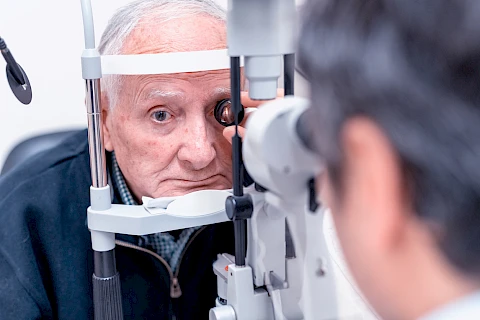
Vision loss is a common issue among seniors. As eyesight declines, everyday tasks can become challenging, making it hard for seniors to adjust. When caregivers understand the emotional and practical needs of seniors with vision changes, they can help make life easier and more comfortable for their loved ones.
The Emotional Impact of Vision Loss
Loss of vision often brings a range of emotions. Seniors may feel frustrated, sad, scared, or even angry. The loss of independence and the ability to engage in everyday activities can lead to feelings of isolation and helplessness. A senior's inability to see loved ones' faces and the world around them can contribute to a sense of disconnection and loneliness. These feelings are natural and deserve empathy and understanding. Caregivers must acknowledge these emotions, providing support and resources to help them cope.
Helping Seniors Adapt to Vision Changes
Adapting to vision loss in seniors requires adjustments at home and in their daily routines. Ensure good lighting throughout the house. Remove tripping hazards like loose rugs or clutter. Installing grab bars in the bathroom and along stairways can provide additional support and safety. When outside, encourage seniors to use a sighted guide to help them navigate their surroundings. Mark commonly used items with tactile labels or stickers. It also pays to teach seniors to rely on other senses for orientation and to help maintain their independence.
Low-Vision Aids and Tools
Various low-vision aids can help seniors maintain their independence. These tools can range from simple magnifying glasses to high-tech electronic devices. Some options include:
- Handheld or stand magnifiers
- Text-to-speech digital book readers
- Large-button telephones and remote controls
- Screen reader software for computers
Selecting the right aid depends on the senior's specific needs and preferences. Remember to demonstrate how to use these aids and provide practice so they can become comfortable and confident in utilizing them.
Support Groups and Rehabilitation Services
Joining support groups can provide emotional and practical help. It’s also a way for seniors to connect with others experiencing similar challenges. You can find these groups locally or online, offering flexible options for participation. Many organizations and community centers host such groups.
Vision rehabilitation services offer training and resources that help seniors make the most of their remaining vision. These services can teach new techniques and suggest tools that improve daily life. Rehabilitation specialists often offer orientation and mobility training, helping seniors navigate their homes and the outside world more confidently.
The Role of Patience and Understanding
Patience matters when supporting a senior with vision loss. A supportive and understanding environment makes all the difference. Allow seniors time to complete tasks on their own. There will be good days and bad days. Encourage open communication about how they're feeling and what they need. Show them you're there to help, not to take over their independence.
Get Support Caring for Seniors With Vision Loss at Senior Helpers
Supporting a senior with vision loss involves understanding their emotional needs, helping them adapt to changes, and being patient and supportive. With understanding and consistent encouragement, you can empower them to navigate their vision challenges with confidence and dignity.
If you need more help caring for a senior loved one dealing with vision loss or feel that professional support is necessary, reach out to Senior Helpers Greenwood-Aiken, SC. We serve Aiken, Greenwood, North Augusta, Chapin, and Leesville, offering personalized in-home care and support to seniors in the community. Contact us today for more information!